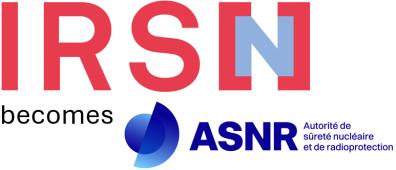Scientific Cooperation

The field of research has a long history of collaboration. The pooling of cultures, techniques, skills and resources has enabled the IRSN to enrich its own scientific approach to risk. Collaboration is a major element of the IRSN's activities, as it promotes both effective and innovative research. The resources deployed and the results obtained, discussed and peer-reviewed are a source of dialogue within the scientific community, helping to develop wider and stronger networks. For IRSN researchers, such collaboration is also one of the ways in which they gain recognition within the same scientific community. With the ever-increasing complexity and scope of nuclear safety and radiation protection research, the IRSN is turning more and more towards Europe for its collaborations.
Take initiatives to consolidate national, European and international research on nuclear and radiological risks.
In order to initiate cutting-edge scientific programs addressing medium and long-term challenges, the Institute’s active and consistent involvement in scientific developments in France (in particular in the framework of national research alliances) and abroad will be promoted. The scientific cooperative partnerships initiated by the Institute should enable it to make the best use of national, European and multilateral instruments such as European technical platforms, or the international research agreements such as those managed by the OECD/NEA, the European Commission or the IAEA.
Appropriate scientific expertise and sufficient resources must be allocated to the areas in which the IRSN wishes to be a recognised player. Being a major player means being directly involved in the implementation of large-scale scientific programs (especially of a research nature), within the framework of potential alliances.
Developing academic partnerships and actively participate in national research alliances
The quality of its national/international academic partnerships is a key aspect of the scientific strategy of a Technical Safety Organisation (TSO) engaged in research. IRSN intends to further develop its already well-established partnership strategy with teams providing high added value on upstream topics of interest to IRSN. This will include the use of Joint Research Units, where such a framework proves most appropriate to develop, steer and give visibility to joint research activities. The Institute will also ensure that it is active in national research alliances, giving priority to:
- The relevance and scientific performance/visibility of the teams with which it works to set up consortia,
- The establishment of framework agreements where necessary, subject to effective monitoring (participation in governance bodies), to foster exchanges (topics, people),
- Contribute to the definition of research objectives to guide scientific collaboration,
- Use this collaboration to promote access to external resources (experimental platforms, computing tools, basic data, specific skills) and to open up our platforms.
Develop collaborations with manufacturers, nuclear operators and medical stakeholders where appropriate
Apart from issues on which it considers it must work independently, the IRSN maintains up strong scientific links with industry, nuclear operators and the medical sector, in accordance with its ethical charter. In its approach, the Institute sets itself the following priorities:
- To ensure it has field knowledge of the safety, security and radiation protection issues faced by manufacturers and operators and that it shares the major challenges of future industrial developments,
- Make efforts to obtain the data needed to validate the calculation tools used in confirmation assessments,
- Raise awareness of the challenges among these stakeholders and share its knowledge in this area,
- Maintain a clearly defined joint collaborative framework to carry out targeted scientific work on research topics of common interest,
- Make the innovative results of this work available to the relevant economic stakeholders.
